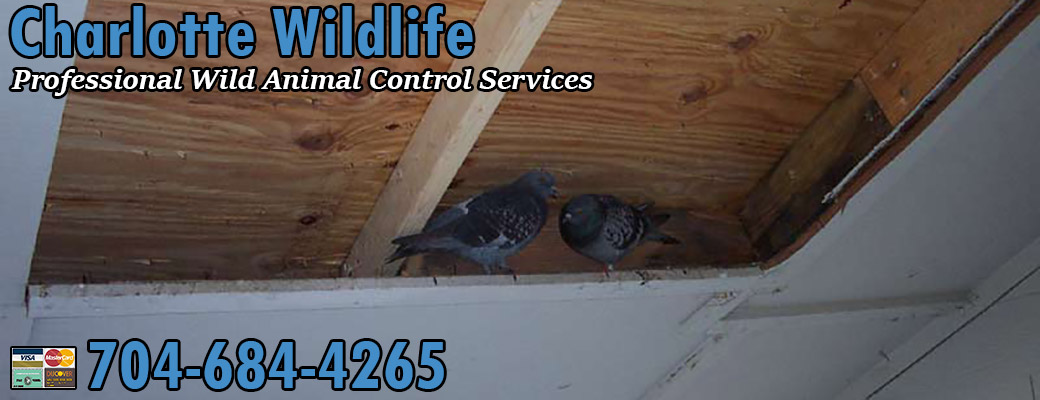Wildlife Exterminator Charlotte - 704-684-4265
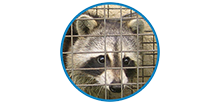
Wildlife Trapping
When it's necessary to remove animals, we focus on humane and effective trapping and relocation.

Home Repairs
A critical step - the identification and repair of any and all wildlife entry points into the home.
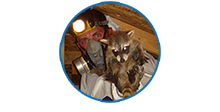
Animals in Attic
We specialize in the removal of animals in the attic - squirrels, raccoons, rats, mice, bats, and more.
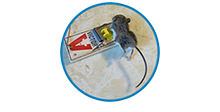
No Poisons!
We never use poisons in any part of our wildlife control, including rodent control. Poisons don't work!
We are Charlotte Wildlife, and we solve conflicts between people and wild animals. From squirrels in your attic, to raccoons in your trash, to bats, rats, birds, and snakes, we do it all. We specialize in safe and effective solutions to North Carolina critter problems. We service the greater Charlotte region, and we offer fast service - we can usually schedule a same-day appointment. Give us a call at 704-684-4265 any time, 24/7, and we will discuss your unique wild animal problem, and give you a free price quote over the phone. We're ready to take your call now!
Our service range: We service Alexander County, Anson County, Cabarrus County, Catawba County, Chester County, Chesterfield County, Cleveland County, Gaston County, Iredell County, Lancaster County, Lincoln County, Mecklenburg County, Rowan County, Stanly County, Union County, York County, and more. We also service Concord, Gastonia, Huntersville, Rock Hill, Cornelius, Hickory, Indian Trail, Kannapolis, Matthews, Mint Hill, Monroe, Mooresville, Salisbury, Shelby, Statesville, Albemarle, Belmont, Bessemer, City Cheraw, Cherryville, Chester, Conover, Davidson, Fort Mill, Harrisburg, Kings Mountain, Lake Norman of Catawba, Lancaster, Lincolnton, Mount Holly, Newton, Pageland, Pineville, Stallings, South Gastonia, St. Stephens, Unionville, Wadesboro, Waxhaw, Weddington, Wesley Chapel, York, and more.
Charlotte Wildlife Education: How to Spot a Skunk Hole
Unfortunately for homeowners, there is a multitude of critters out there that want to make their den in your garden. It is often difficult to distinguish between them. It is critical to identify which pest has chosen to move in as this will make it easier to get rid of them. Skunks are found throughout most of North and South America. This means that if you live in these areas you are bound to come across one of these creatures at some point. As their preferred habitat is being threatened by urban sprawl they are forced to move into residential areas in order to obtain food and shelter.
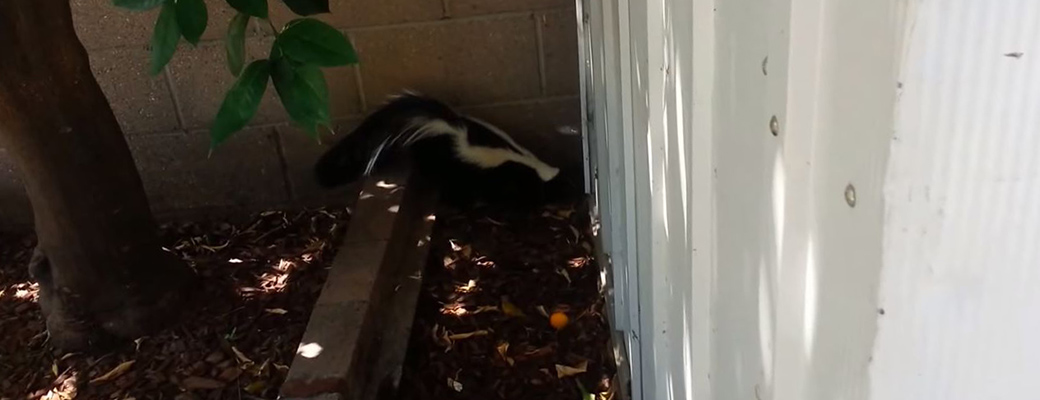
What does a skunk hole look like?
Skunks start looking for a place to build their dens in late summer and early fall. This can cause significant problems for people with gardens. Skunks are less likely to become a problem if they cannot find a source of food or water on your property. They eat larvae and other insects. Therefore, they will start digging up your grass in order to obtain food.
A skunk can cause great destruction before you even know they are there. Skunk holes are funnel-shaped and can often be only 1 to 3 inches in diameter. This is easily hidden and may be difficult for homeowners to spot. Digging their own dens is not their preferred choice of residence. There are other options that they will exhaust first.
· Using the abandoned dens of other animals.
· Openings under porches and decks.
· Hollowed out logs
· Brush Piles
· Large piles of wood that they can crawl under
If none of these are available, they will dig their own dens. You should be able to see massive piles of loose dirt. This has been excavated from the den they are digging. Although the opening of the den can be relatively narrow, the actual den is considerably larger in size.
The problem with skunk dens
The most significant problem with skunk dens is that they can compromise the structural integrity of your home. Dens that are built under the porches and decks of homes can cause it to collapse. They can also dig tunnels in your garden that will cause the ground to fall in on itself.
Identifying the culprit
You can identify the critter in your garden by looking at the size of the hole that has been dug. If it is a shallow den then it will not be large enough to house a skunk and her babies. If it extends into a larger den then, you might have a skunk who has taken up residence.
Holes can be divided into two groups:
1. Larger than 3 inches in diameter.
2. Smaller than 3 inches in diameter.
Skunks can fall into both of these categories. Therefore, you will need to do a little more investigating as to how large the den inside is. If the hole is very large it is unlikely to be that of a skunk.
Previous Education Articles
What are some humane ways to kill a Charlotte house mouse?
Top Tips To Keep Charlotte Geese Away From Yard Or Pond
Common snakes of North Carolina
Will a strobe light or high pitched sound deterrent machine work on Charlotte rodents?

